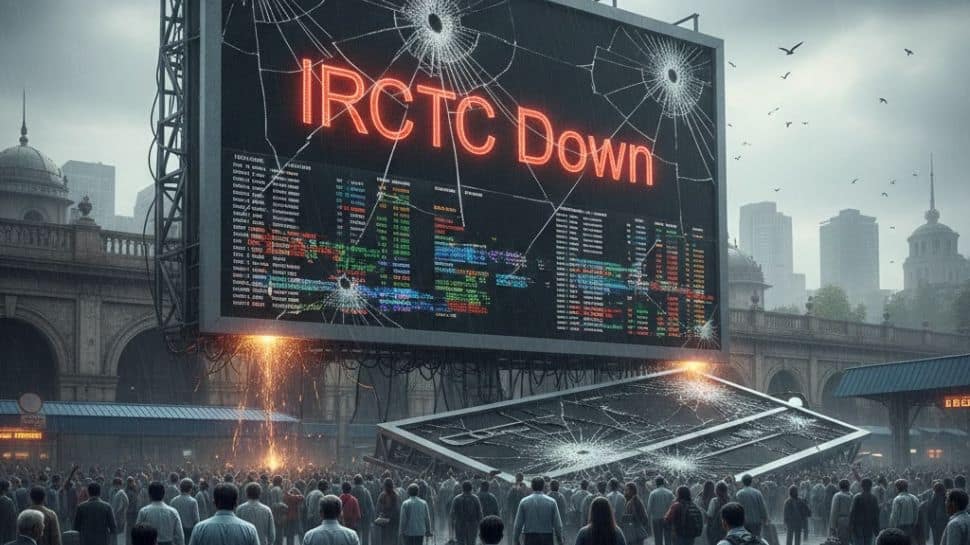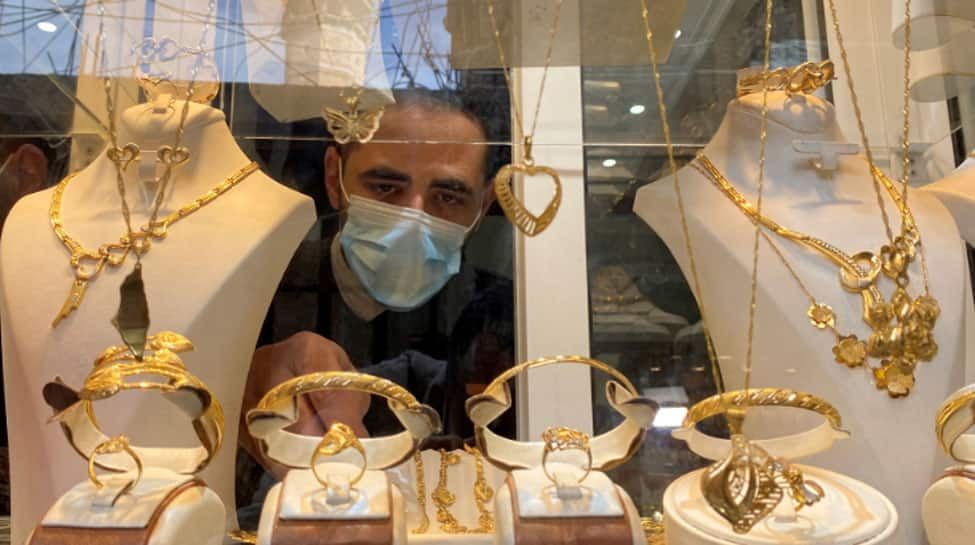Business
How ultra-rich families invest in sports, from major leagues to social clubs

SEATTLE, WA – SEPTEMBER 07: George Kittle #85 of the San Francisco 49ers celebrates with fans and teammates after scoring a touchdown against the Seattle Seahawks during the game at Lumen Field on September 07, 2025 in Seattle, Washington. (Photo by Robin Alam/Icon Sportswire via Getty Images)
Icon Sportswire | Icon Sportswire | Getty Images
A version of this article first appeared in CNBC’s Inside Wealth newsletter with Robert Frank, a weekly guide to the high-net-worth investor and consumer. Sign up to receive future editions, straight to your inbox.
While ultra-wealthy families and their investment firms are investing in fewer startups, they are still clamoring for a piece of the action when it comes to sports.
According to a new survey by Goldman Sachs, 25% of family offices have invested in sports or related assets like ticketing or arenas, and another quarter are interested in doing so.
Last week, Julia Koch, the widow of billionaire David Koch, and her family agreed to buy a minority stake in the NFL’s New York Giants, according to Bloomberg. In June, Guggenheim Partners CEO and billionaire Mark Walter reached a deal to buy a majority stake in the NBA’s Los Angeles Lakers at a valuation of $10 billion. And a trio of Bay Area families, including venture capitalist Vinod Khosla’s, bought a 6% stake in the San Francisco 49ers in May.
However, while women’s leagues and emerging sports like pickleball have garnered more buzz, investor appetite hasn’t caught up, according to the bank’s survey. Only 19% of 245 family offices said they had invested in or are interested in investing in women’s established leagues, while 71% expressed interest in major men’s leagues. A smaller percentage (16%) indicated past investment or interest in women’s emerging leagues or men’s minor leagues.
There are some high-profile examples, with a cohort of billionaire investors securing three new WNBA team franchises in June. However, these investors are betting on future equity growth rather than cashflow for financial return, as previously reported by CNBC’s Alex Sherman.
Goldman Sachs’ Meena Flynn told Inside Wealth that family offices, which invest for the long term, can afford to be patient with team ownership, no matter what kind of sports they’re getting into.
“It really combines their interests from a passion perspective as well as long term value creation,” she said.
Moreover, family offices see sports as hedges against inflation since they have multiple revenue sources such as streaming rights and ticketing, according to Flynn, Goldman Sachs’ co-head of global private wealth management.
Many major league owners are growing their sports empires by investing in other sports and related enterprises, such as Blackstone’s David Blitzer, the first person to own equity in all five major men’s U.S. sports leagues. This year alone, his family office Bolt Ventures has backed Fantasy Life, a sports betting media firm; Ballers, a chain of social clubs for racket sports; and club operator Padel Haus.
Business
IRCTC Down? Tatkal Ticket Users Complain Of Repeated ‘Error’ Messages On App; Netizens React; How to Book Train Tickets Online

IRCTC Tatkal Train Tickets: IRCTC’s Tatkal ticket booking service came under fire from netizens on Tuesday, with several users taking to social media to report repeated ‘Error’ messages on the app and website during peak booking hours. Many users said they were unable to secure Tatkal tickets despite multiple attempts, alleging that the system failed at critical stages of the booking process. The complaints emerged even as no major outage was officially reported by IRCTC.
IRCTC Down: Downdetector Shows 68% Outage
The online platform Downdetector recorded a spike in complaints, with 68% of users reporting issues with the IRCTC website. The outage reports mainly came from major metro cities such as Delhi, Mumbai, Bengaluru and Kolkata. Meanwhile, 31% of users said they faced problems with the mobile app.
IRCTC: OTP For Tatkal Train Tickets
Indian Railways is set to make one-time passwords (OTPs) mandatory for booking Tatkal train tickets from railway reservation counters, a move that officials said aims to curb the misuse of the last-minute ticket booking facility. Passengers will have to provide a one-time password, received on their mobile phones, to book Tatkal train tickets from railway reservation counters.
Business
Gold Prices Hit All‑Time High Of Rs 1,38,381 Per 10 Grams

New Delhi: The rates of gold and silver surged by over 1 per cent to hit fresh record highs on Tuesday, driven by safe-haven demand, notably due to escalating US-Venezuela tensions.
MCX gold February futures rose 1.2 per cent to an all‑time high of Rs 1,38,381 per 10 grams and were up 1.01 per cent as of 10.48 am.
MCX silver surged 1.7 per cent to a record high of Rs 2,16,596 per kilogram and was up 1.30 per cent as of 10.48 am. The dollar index had declined 0.20 per cent during the session, making gold cheaper in overseas currencies.
Heightened geopolitical uncertainty, notably escalating US‑Venezuela tensions, has underpinned the rally, analysts said.
The US Coast Guard this month seized a super tanker under sanctions carrying Venezuelan oil and tried to intercept two more Venezuela‑related ships over the weekend, heightening tensions, according to multiple reports.
“Safe haven bidding is featured to start a holiday‑shortened trading week, amid heightened geopolitical tensions,” Rahul Kalantri, VP Commodities, Mehta Equities Ltd, said.
Intensifying US-Venezuela tensions and the killing of a Russian army general in a bomb attack on Monday increased geopolitical risk and supported gold and silver, Kalantri said.
Both precious metals also gained after cooling-off US inflation and no bigger surprise from the Bank of Japan policy meetings last week, he added.
Gold has support at the Rs 1,35,550-1,34,710 zone, while resistance is at the Rs 1,37,650-1,38,470 levels.
Silver has support at Rs 2,11,150-2,10,280 zone while resistance is at Rs 2,13,810, 2,14,970 levels, the analyst said.
Aggressive central bank buying, expectations of US Fed rate cuts, concerns over the impact of US tariffs, geopolitical tensions, and robust inflows into gold and silver ETFs drove the gold and silver prices this year.
Domestic spot gold prices have surged 76 per cent year‑to‑date and international gold prices almost 70 per cent in 2025, on track for their strongest annual performance since 1979.
Both domestic and international prices of silver have gained about 140 per cent YTD.
Business
Can Income Tax Department Access Your Social Media, Emails, Other Digital Platforms From 1 April 2026? Heres All You Want To Know

New Delhi: A social media post is going viral that claims, from 1st April 2026, the Income Tax Department will have the authority to access your social media, emails, and other digital platforms to curb tax evasion.
A post is being circulated by an X handle IndianTechGuide. Fact-checking agency PIB has refuted the social media claim. PIB has stated that the claim being made in this post is misleading.
Can Income Tax Department Access Your Social Media, Emails, Other Digital Platforms?
PIB further explained, the provisions of section 247 of the Income Tax Act 2025 are strictly limited to Search and Survey operations. Unless a taxpayer is undergoing a formal search operation due to evidence of significant tax evasion, the department has no power to access their private digital spaces.
A post by @IndianTechGuide claims that from April 1, 2026, the Income Tax Department will have the ‘authority’ to access your social media, emails, and other digital platforms to curb tax evasion.#PIBFactCheck
_The claim being made in this post is #misleading! Here’s the real_ pic.twitter.com/hIyPPcvALF
— PIB Fact Check (@PIBFactCheck) December 22, 2025
It added, the powers cannot be used for routine information gathering/processing, or even for cases under scrutiny assessment. These measures are specifically designed to target black money and large-scale evasion during search and survey, not the everyday law-abiding citizen
PIB said that the power to seize documents and evidence during search and survey operations has existed since the 1961 Act.
How to get messages fact-checked by PIB
If you get any such suspicious message, you can always know its authenticity and check if the news is for real or it is a fake news. For that, you need to send the message to https://factcheck.pib.gov.in. Alternatively you can send a WhatsApp message to +918799711259 for fact check. You can also send your message to pibfactcheck@gmail.com. The fact check information is also available on https://pib.gov.in.
-

 Business1 week ago
Business1 week agoStudying Abroad Is Costly, But Not Impossible: Experts On Smarter Financial Planning
-

 Fashion5 days ago
Fashion5 days agoIndonesia’s thrift surge fuels waste and textile industry woes
-

 Business1 week ago
Business1 week agoKSE-100 index gains 876 points amid cut in policy rate | The Express Tribune
-

 Sports1 week ago
Sports1 week agoJets defensive lineman rips NFL officials after ejection vs Jaguars
-

 Business5 days ago
Business5 days agoBP names new boss as current CEO leaves after less than two years
-

 Entertainment1 week ago
Entertainment1 week agoPrince Harry, Meghan Markle’s 2025 Christmas card: A shift in strategy
-

 Tech5 days ago
Tech5 days agoT-Mobile Business Internet and Phone Deals
-

 Sports5 days ago
Sports5 days agoPKF summons meeting after Pakistani player represents India in kabaddi tournament













